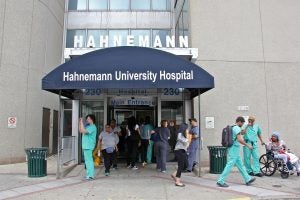Bill to prevent sudden hospital closures (like Hahnemann) moves along in City Council
A committee had its first hearing on a measure requiring hospitals to provide advance notice and a detailed closure plan to the city’s health department.
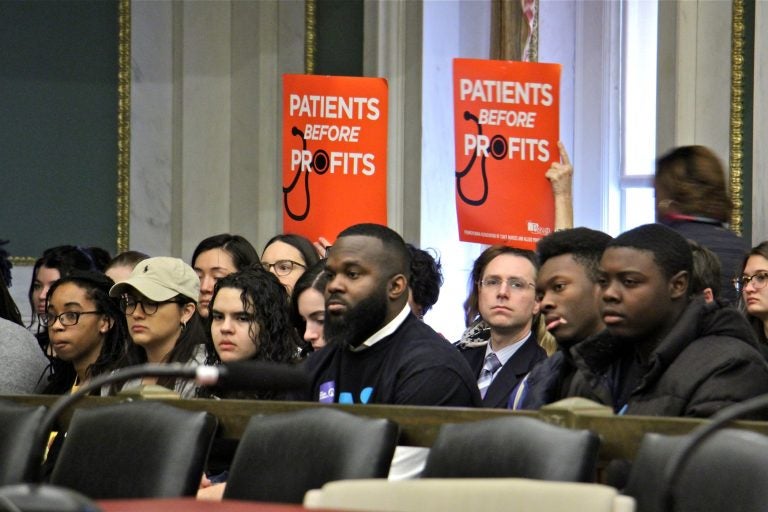
Supporters of a bill that woulf require hospitals to submit a closure plan before shutting down hold up signs during a hearing at City Hall. (Emma Lee/WHYY)
Philadelphia City Council’s Public Health and Human Services Committee had its first hearing Wednesday on a bill meant to prevent rapid hospital closings, like the one Hahnemann University Hospital experienced over the summer.
Pennsylvania regulations require a hospital to give 90 days’ notice and a detailed closure plan before shutting its doors. But Hahnemann flouted those rules — ignoring a cease-and-desist order from the state’s Department of Health — and effectively closed within about a month.
A new bill introduced by Councilmember Helen Gym would require hospitals to give six months’ notice and a closure plan to the Philadelphia Department of Public Health.
“The harsh realities and the destructive practices of a for-profit health care market means that we in Philadelphia are going to step up,” Gym said at the hearing. “We are not going to allow this to happen again on our watch.”
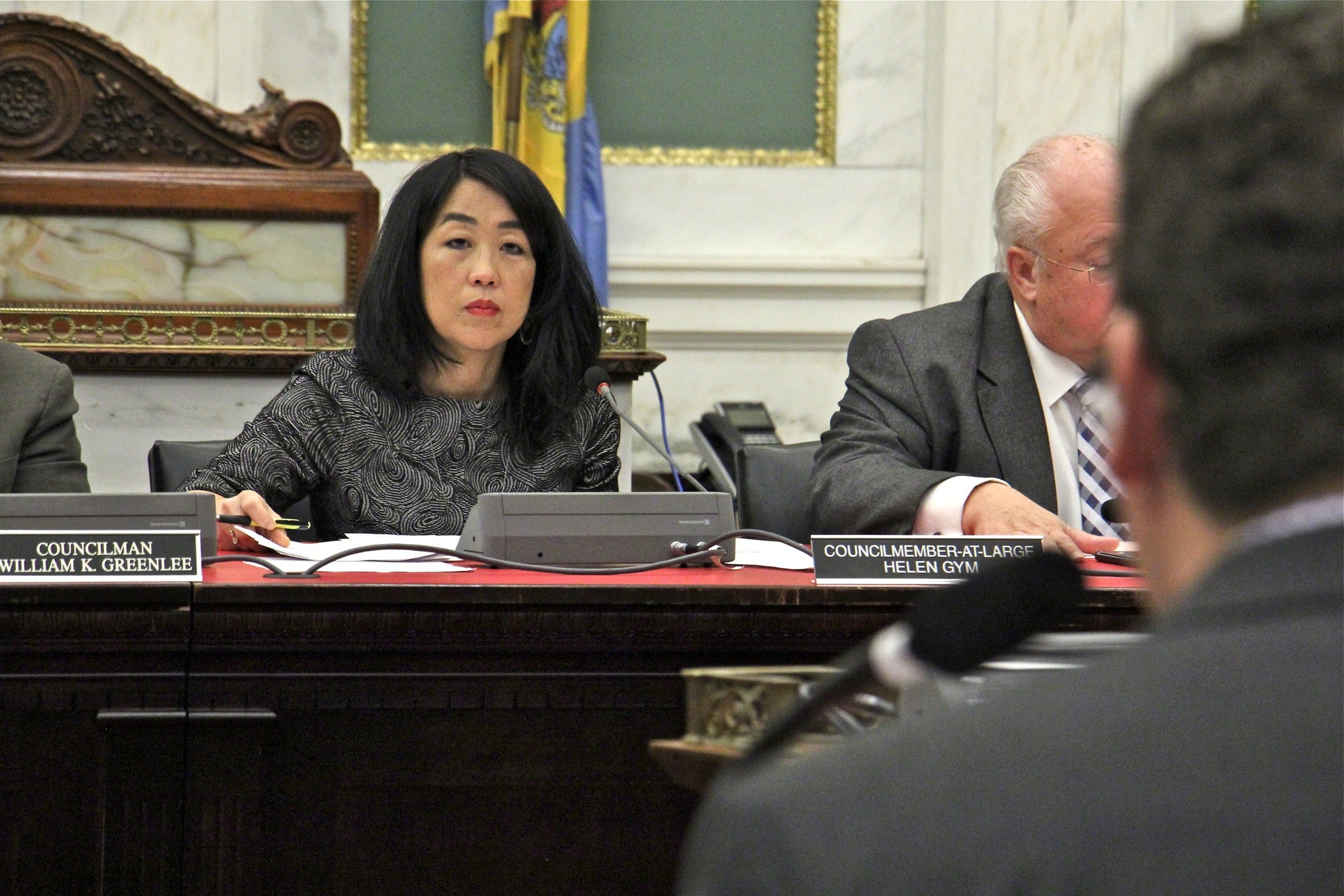
In June, American Academic Health System, which owns Hahnemann, announced plans to close the 495-bed teaching hospital at Broad and Vine streets in Center City. The city — from medical staff and trainees to lawmakers — condemned the decision, saying the closure would constitute a public health emergency. Hahnemann’s emergency department typically saw over 40,000 people a year and many of its patients were uninsured or on Medicaid.
Hahnemann’s troubles began in the 1990s, in a series of acquisitions that began with Allegheny Health, which eventually sold the hospital to Tenet Healthcare. American Academic Health bought Hahnemann from Tenet in 2018, along with St. Christopher’s Hospital for Children.
The unwinding of Hahnemann and its assets has been a fraught process that has been tied up in U.S. Bankruptcy Court in Wilmington. St. Christopher’s was recently sold to Tower Health and Drexel University for $50 million as a part of the Chapter 11 bankruptcy proceedings.
The bankruptcy court gave Hahnemann permission to sell off its medical residency program — Hahnemann was the primary teaching hospital for Drexel’s College of Medicine — but the Centers for Medicare and Medicaid Services, the federal agency that funds the residencies, objected to their sale and ultimately won a temporary stay on that decision. An appeal of the ruling, filed by the Justice Department, is pending in U.S. District Court.
Combined with Hahnemann’s rapid closure, all this left many medical workers, trainees, patients, and hospital staff scrambling and, some of them say, created a traumatic environment for those employed and cared for by the hospital.
Former Hahnemann nursing administrator Regina Franklin testified at Wednesday’s hearing, speaking through tears about the experience of trying to care for patients as the hospital was effectively crumbling around her.
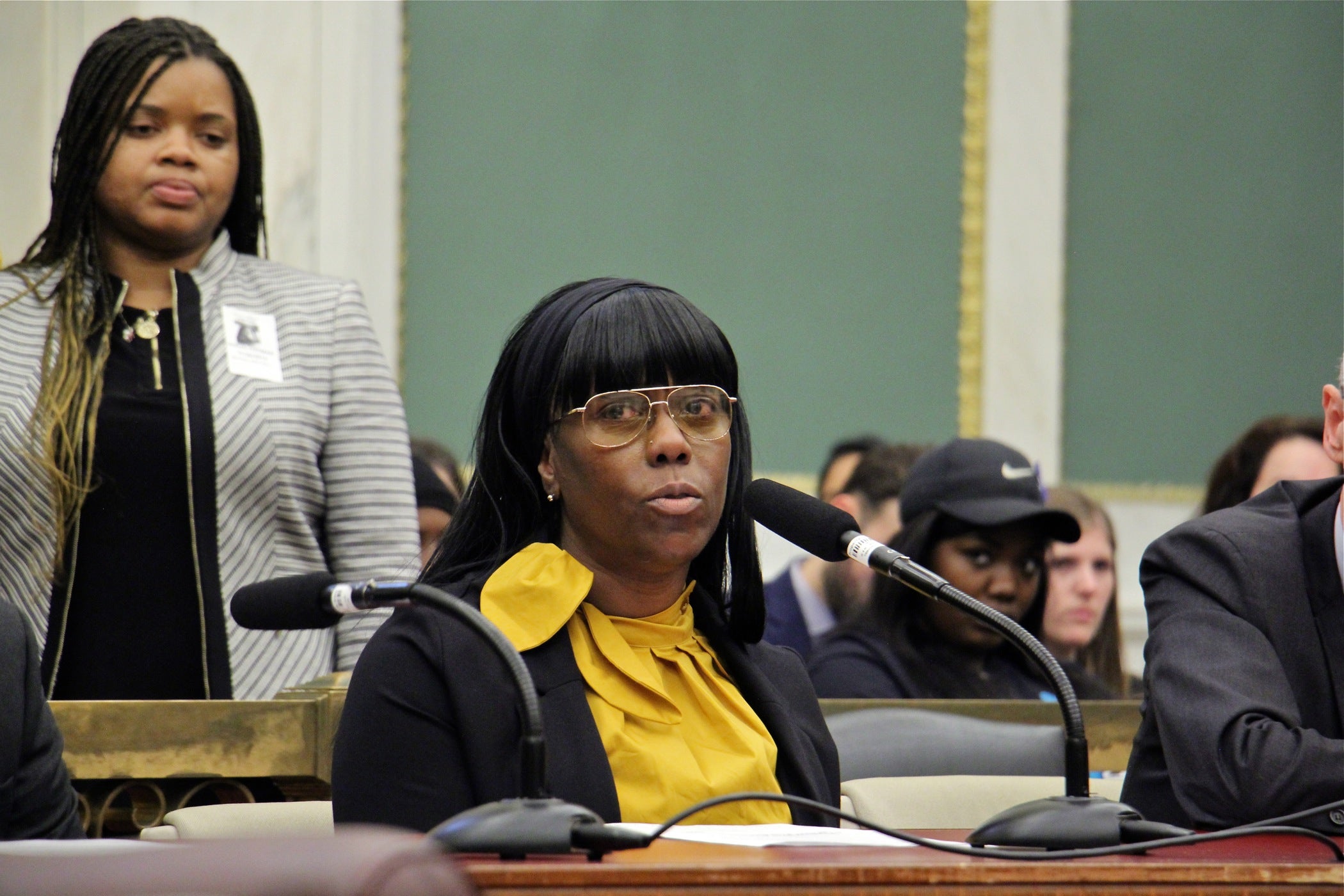
“We ended up cutting towels so that the nursing department would be able to wash our patients,” she said. “Vendors weren’t being paid, so supplies weren’t coming in. Not only was it embarrassing to us not to have cups for our patients to have water in them, it was so unethical.”
Franklin said Gym’s bill would have helped both patients and staff make a smooth transition.
“This bill would give us more time — more time to do what needs to happen, and to get prepared for out there in the world, because you have to understand, a lot of us hadn’t interviewed or anything for over a certain amount of years,” she said.
Kevin D’Mello, an assistant professor of medicine at Drexel University College of Medicine and a former hospitalist at Hahnemann, also spoke tearfully in support of the bill, which he said would provide additional protections beyond state regulations. He noted that the state did issue a cease-and-desist order to American Academic CEO Joel Freedman, warning him not to close the hospital.
“In this situation, Mr. Freedman did what he wanted, and it felt like our hands were tied,” D’Mello said.
Although Hahnemann was the focus of the hearing, it came amid tensions at other hospitals across the city. Last month, Temple’s nurses rallied for language in their union contract ensuring that any new operator would honor the contract, the product of years of negotiating, should the hospital’s ownership change.
Temple is currently in the process of selling off the profitable Fox Chase Cancer Center, which it owns, to Jefferson Health, along with its interest in Health Partners Plans.
Gym’s bill has the support of most of City Council. Speaking at the hearing, Councilmember Al Taubenberger, who is cosponsoring the measure, decried the way the Hahnemann closure was handled.
“It’s terrible for the workers, terrible for the city, and I stand with those who are trying to rectify that and make that better,” Taubenberger said.
Mayor Jim Kenney also supports the bill, as does the city’s health department.
“We learned from Hahnemann that local government and local health care providers have key roles to play in hospital closures,” Health Commissioner Thomas Farley said in prepared testimony. “I believe [this bill] would be a useful adjunct to the state regulatory oversight of hospital closures and will help protect the health of patients receiving medical care in Philadelphia.”
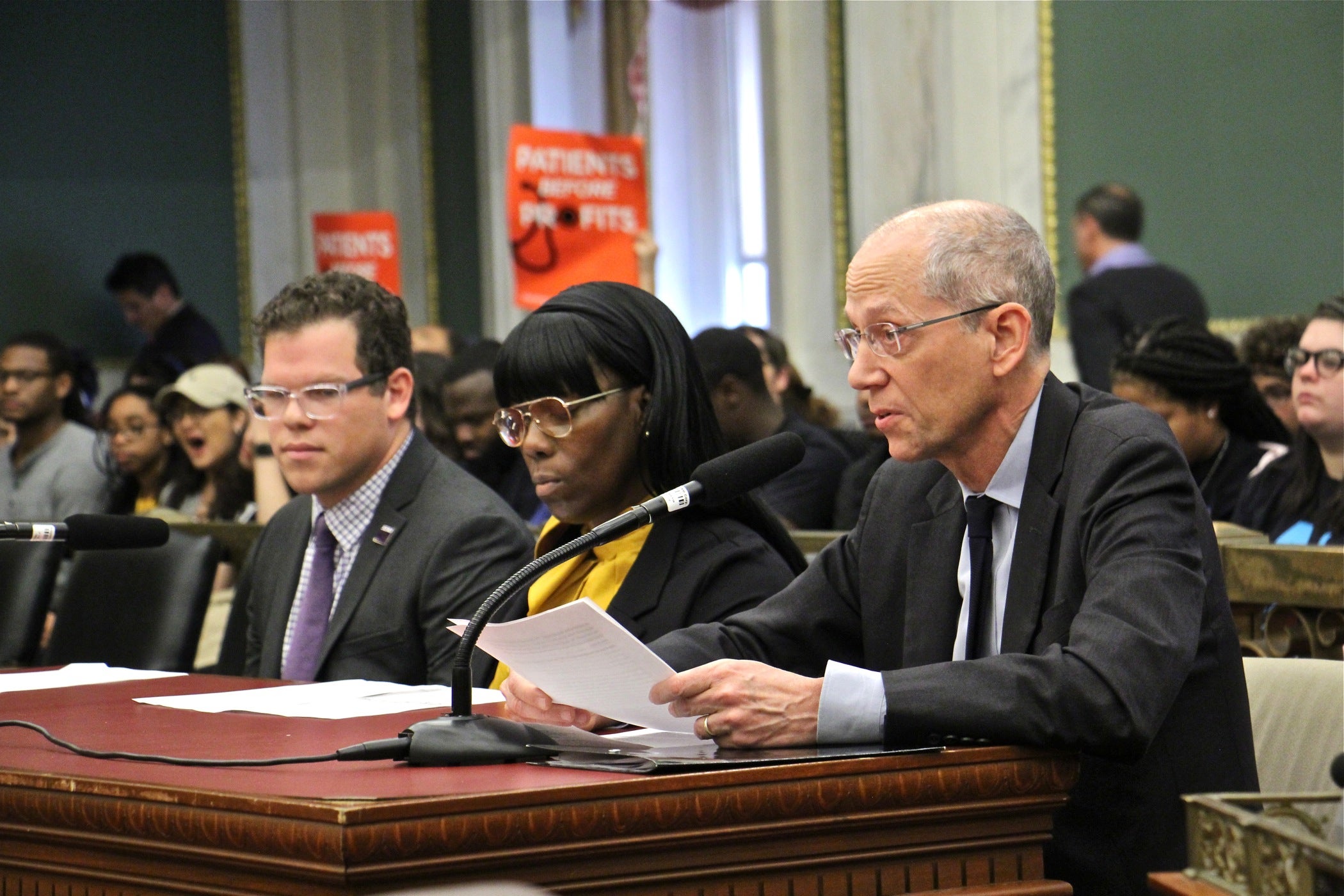
An outstanding issue raised by David Aizenberg, who runs Drexel’s internal-medicine residency, was that of malpractice insurance, which American Academic Health has said it will no longer provide to Hahnemann’s residents and medical fellows — who have since moved to other programs — after Jan. 10. That insurance, which can cost up to $70,000, would cover both trainees and patients, should a medical mistake occur.
“I ask the council to consider if there’s anything we can do to help this situation,” Aizenberg said.
WHYY is your source for fact-based, in-depth journalism and information. As a nonprofit organization, we rely on financial support from readers like you. Please give today.


